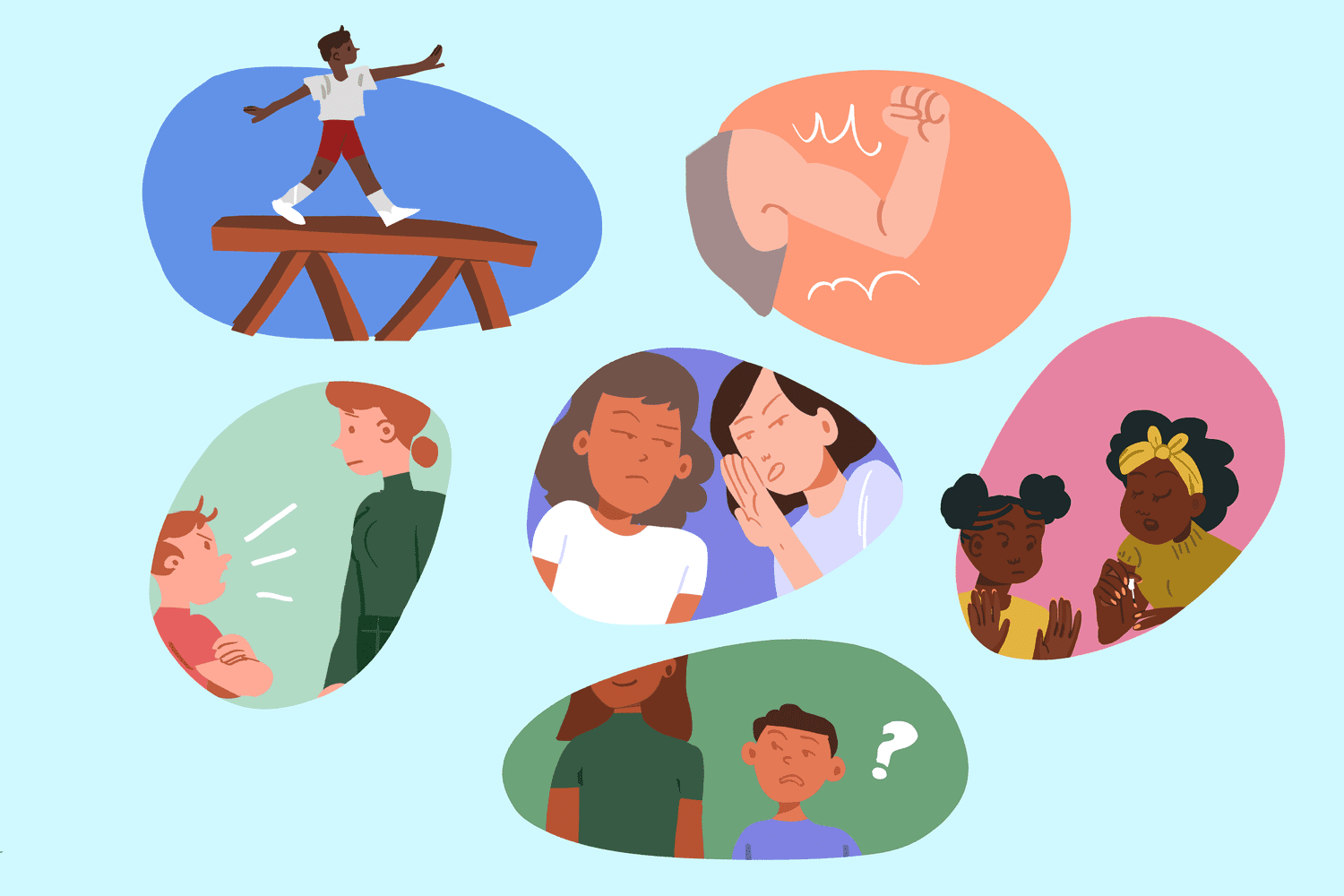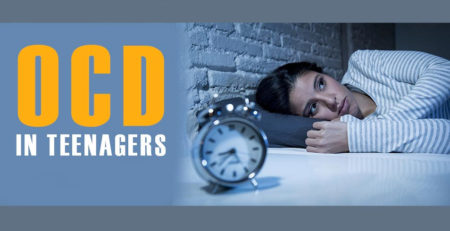What Parents Need to Know About Developmental Disorders in Children and Teenagers
Developmental disorders are a group of conditions that affect a child’s growth and development. These disorders can significantly impact a child’s physical, cognitive, and social abilities. While some developmental disorders are present from birth, others may not be diagnosed until later in childhood or adolescence.
Raising a child with a developmental disorder can be challenging, but many resources are available to help families navigate these challenges. In this blog post, we’ll explore some of the most common developmental disorders in children and teenagers and provide tips on supporting your child’s development and well-being.
Causes
Developmental disorders are not uncommon and affect children in unique ways. These disorders are mainly linked to problems developing certain brain parts, and genes play a vital role in a child’s nervous system. Although complications during pregnancy or birth can sometimes increase the risk of developmental disorders, they are rarely a factor. It is essential to understand that a developmental disorder is not a mental disability nor a sign of a mental illness or nervous system disorder.
Environmental factors such as a lack of support at home or poor teaching at school don’t have any influence either. However, the child’s family, kindergarten, and school can influence how the disorder develops and how much the child suffers due to their impairments. It is crucial to provide these children with the necessary support and resources to ensure that they can thrive despite their developmental challenges.
Autism Spectrum Disorder (ASD)
Autism Spectrum Disorder (ASD) is a neurodevelopmental disorder that affects a child’s ability to communicate and interact socially. Children with ASD may struggle with nonverbal communication, such as making eye contact or using gestures. They may also have restricted interests or repetitive behaviors.
Early intervention and therapy can be critical for children with ASD. Applied Behavior Analysis (ABA) is a research-based therapy that teaches children with ASD social, communication, and behavioral skills.
Attention Deficit Hyperactivity Disorder (ADHD)
Attention Deficit Hyperactivity Disorder (ADHD) is a common disorder that affects a child’s ability to focus and control their behavior. Children with ADHD may struggle with hyperactivity, impulsivity, and inattention, which can impact their academic performance, social relationships, and overall well-being.
Behavioral therapy, medication, and lifestyle changes can all be effective treatments for ADHD. Parents can also support their child’s academic success by providing structure, routines, and accommodations when needed.
Intellectual Disability (ID)
Intellectual Disability (ID) is a condition that impacts a child’s intellectual functioning and adaptive behavior. Children with ID may struggle with essential life skills like communication, self-care, and social relationships.
Early intervention and educational support are essential for children with ID. Special education services, speech therapy, and occupational therapy can all help children with ID develop the necessary skills and improve their quality of life.
Dyslexia
Dyslexia is a learning disorder affecting a child’s reading and writing ability. Children with dyslexia may have difficulty decoding words, recognizing letter sounds, or understanding the meaning of the written text.
Prompt diagnosis and specialized instruction are crucial for children with dyslexia. Multisensory reading programs, educational accommodations, and assistive technology can all help children with dyslexia succeed academically.
Depression and Anxiety
Depression and anxiety are common mental health disorders that can occur in children and teenagers. Depression may cause changes in mood, sleep, and appetite, while anxiety can lead to excessive worry, fear, and avoidance behaviors.
Treatment for depression and anxiety may include therapy and medication. Parents can also support their child’s mental health by providing a nurturing and stable home environment, encouraging open communication, and seeking professional help when needed.
Outlook and Expectations
It’s been estimated that about 5 to 8% of children were diagnosed with developmental disorders. Such difficulties can range from language problems to intellectual disabilities, and believe it or not, boys are more likely to suffer from such issues than girls. Researchers have uncovered various root causes for why these conditions are more common in males, ranging from chromosomal mutations to environmental effects. Regardless, it is paramount that these kids receive proper treatment and services, accommodating their needs accordingly.
At the beginning of two years old, developmentally related issues can start to manifest; however, when they become more apparent, they can vary depending on the specific condition. Regarding language development, signs may appear as early as two or three years old. Regarding motor skills, symptoms can occur between the ages of three and five. Still, medical professionals typically hold off making any confirmed diagnosis until the child is at least five. When it comes to impairments that stem from reading, writing, and math, they tend to be observed sooner, within the first few months at school, leading to a proper classification in second grade.
Developmental problems in small children can sometimes take longer to resolve than expected, and this could be because some children develop at a slower rate than others. It is believed that if a child over three still shows signs of mental speech or a child over five still has motor skill difficulties, these will become more long-term developmental hindrances.
Remedial methods may make it possible for adult sufferers to cope better with such conditions, yet, there are levels of impact that treatment cannot counteract altogether. Early intervention can go a long way toward treating related disorders during infancy and adolescence by providing appropriate support services.

The effects of a developmental disorder
The effects of developmental disorders vary greatly depending on the specific type and severity of the disorder. Minor motor skills disorders may not significantly impact a child’s life, whereas reading and writing deficiencies can be much more impactful.
These disorders can hurt a child’s self-esteem, as they may feel like they cannot perform specific tasks as well as their peers. Parents may also feel overwhelmed when supporting a child with a developmental disorder. Providing children with the necessary resources and support is essential to help them overcome and manage their condition.
Children with developmental disorders often face specific challenges that can make it harder for them to navigate through life. They may experience irritability and restlessness, along with concentration and behavioral issues. Additionally, they may struggle with completing tasks they find difficult, which could lead to feelings of frustration or giving up entirely. Making and keeping friends can also be challenging, especially if they face teasing or exclusion from group activities.
Unfortunately, these difficulties can carry on into adulthood and create a risk for mental health problems such as anxiety and depression. Understanding and addressing these challenges for children with developmental disorders is essential to ensure they receive the support they need to reach their full potential.
Diagnosing Development Disorders
As parents or caregivers, we often wonder if a child is developing at their own pace or if there’s something more concerning going on. It can be challenging to determine if a child has an actual developmental disorder, but we must take the time to investigate any potential issues. This means seeking a comprehensive examination by a qualified doctor or specialist who can assess the child’s functioning from various perspectives. By understanding a child’s unique developmental trajectory and identifying any areas of concern, we can best support them in reaching their full potential.
When a child struggles with a particular issue, taking a holistic approach to their health care is essential. That’s why doctors and health care specialists who work with children focus on the specific problem the child is facing and look at their overall physical and mental development. They use various tools, including specialized tests for speech, motor skills, reading, writing, and neurological and psychological evaluations. They also conduct sight and hearing tests to ensure that physical or mental illnesses do not cause any delays in development. It’s all about ensuring that every aspect of the child’s well-being is considered so that they can receive the best possible care and support.
When diagnosing a child with developmental difficulties, involving more than just the child themselves is crucial. Parents, teachers, and other individuals close to the child are also included in the diagnostic process. Ultimately, the goal is to understand how the child’s difficulties impact their daily life, including family dynamics and personal well-being. By taking this comprehensive approach, healthcare professionals can provide a more accurate diagnosis and determine the best course of action for the child’s continued care. It’s essential to ensure that the child receives a diagnosis and the support necessary to help them thrive in all aspects of their life.
When it comes to performance-based tests and psychological examinations for children, accuracy is never a guarantee. This is mainly due to the subjectivity of test results, which can be influenced by factors such as the child’s mood, cooperation levels, and perceived pressure. That being said, these tests must be carried out by experienced professionals in suitable environments. By doing so, the likelihood of errors or inaccuracies is significantly reduced. While no test can ever be completely flawless, taking these precautions can help to ensure that children receive the most accurate and reliable results possible.
Following a particular set of guidelines is essential when diagnosing developmental disorders in children. Generally speaking, a child should only be labeled as having a developmental disorder if their abilities are significantly below what’s expected for their age group and if the problems persist even when given extra support. It’s also important to note that the child must have had these issues for some time.
It’s important not to jump to conclusions or make hasty diagnoses as it could do more harm than good. Instead, parents and caregivers should work with healthcare professionals to evaluate the child’s situation and create a plan for providing support and assistance. By following these guidelines and being patient, we can better understand the child’s needs and provide them with the best possible care.
Treatments for Development Disorders
When treating childhood difficulties, it’s essential to consider the specific challenges a child faces and their impact on their life. For some kids, light, casual support from their parents can make a big difference. Whether playing sports together, engaging in arts and crafts, or reading aloud, parents can find ways to help their children build essential skills and abilities. Of course, depending on the severity of the issue, additional treatment may be necessary. But starting with simple, enjoyable, and engaging activities that can positively impact a child’s well-being is always helpful.
When a child faces persistent problems that negatively affect their well-being, seeking additional support is crucial. Knowing where to start can be difficult, but getting detailed advice is an excellent first step. Consider questions such as creating a positive atmosphere at home, how parents can support their child daily, and strategies to boost their child’s self-esteem. Establishing reasonable expectations for the child and setting boundaries as needed is also essential. With the proper guidance and support, families can work together to help the child thrive.
Support and treatment for children with motor, speech, or learning development disorders can take the following forms:
- Speech therapy
- Occupational therapy
- Physiotherapy
- Special education interventions
- Psychological/psychotherapeutic interventions
- Specialized support that combines psychological, educational, and physical interventions
- Exercises to improve fine motor skills (handwriting skills)
- Reading, writing, and math training
When treating children, setting realistic goals that won’t overwhelm them is essential. Treatment should provide the necessary support in small doses without adding extra stress to the child’s life. Setting expectations that are too high can lead to disappointment and conflict.
Treatment can be a long process, but it can significantly improve a child’s chances of compensating for any deficiencies or reducing their negative impact. While it may not guarantee a complete solution to all problems, it’s essential to helping children lead healthy, happy lives.
Developmental disorders can present unique challenges for families, but with the right resources and support, children and teenagers with these conditions can thrive. If you suspect your child may have a developmental disorder, it’s essential to seek an evaluation from a qualified healthcare provider. Early intervention and treatment can significantly impact your child’s long-term development and success. Remember, you are not alone in this journey, and many resources are available to help you and your family every step of the way.
Contact us today at 816.819.5166 or schedule your appointment online.












